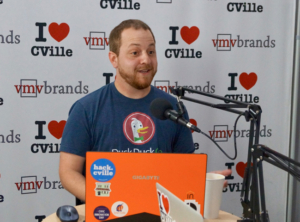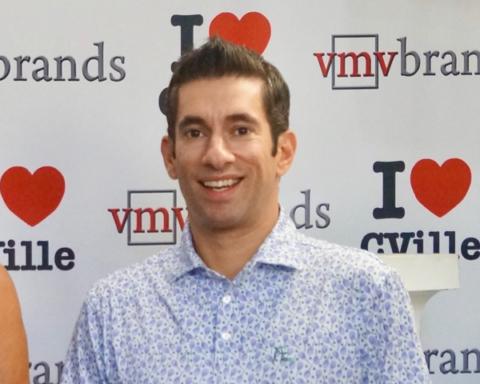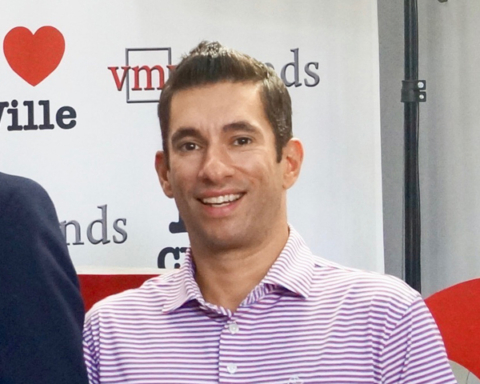 Charlottesville Planning Commissioner Rory Stolzenberg’s recent home purchase on Park Street has drawn the ire of housing watchdogs and motivated taxpayers to question the frequency and transparency of City Hall’s disclosure of holdings regulations for elected and appointed officials.
Charlottesville Planning Commissioner Rory Stolzenberg’s recent home purchase on Park Street has drawn the ire of housing watchdogs and motivated taxpayers to question the frequency and transparency of City Hall’s disclosure of holdings regulations for elected and appointed officials.
Stolzenberg, a talented software engineer and the most vigorous supporter on the Planning Commission of upzoning the City of Charlottesville, purchased a home on Park Street for $899,000 on August 18 through a nondescript single-member limited liability company called Two Acre Wood, LLC.
The 1.98-acre parcel has a 3-bedroom, 3-bathroom, 3,463-square foot single family detached home built in 1959 on the lot. The home was purchased a few months before upzoning will most likely be approved by City Council during the window when the Planning Commission had maximum influence (i.e. before the Planning Commission stamped its approval). The Planning Commission recommended the City Council authorize its version of upzoning last week.
When upzoning is approved by City Council – some political pundits believe it will be approved in the next 60 days – Stolzenberg’s purchase will benefit from enhanced development entitlement, which will significantly increase its value. Currently, the property is zoned R-1, a zoning classification intended for single family homes only. Following an approved upzoning, Stolzenberg’s purchase will be upzoned R-B, which will allow up to six units built on the 1.98 acres.
Stolzenberg made a curious choice with his closing attorney for his Park Street home. Nicole Scro, a local builder, developer and esquire, was the recording attorney for Stolzenberg’s transaction. A third generation builder and developer, Scro is the founder and president of Gallifrey, LLC, which has developed projects in the City of Charlottesville and presents projects before the Charlottesville Planning Commission.
While purchasing real estate within the discreet confines of an LLC is common, we do not see it as often for primary residences. Furthermore, with Stolzenberg’s purchase, he used a “registered agent” for his Two Acre Wood, LLC, which creates an additional layer of anonymity.
I have no problem with an appointed government official who sets housing policy for Charlottesville purchasing a home within Charlottesville City limits.
I have no problem with an appointed government official who sets housing policy for Charlottesville purchasing a home through an anonymous LLC.
I have no problem with an appointed government official who sets housing policy for Charlottesville purchasing a home with obvious upzoning potential a few months before upzoning is approved regardless if the timing raises eyebrows.
However, here are the problems I do have:
Why did Stolzenberg choose Scro as his closing attorney? There are many closing attorneys in Charlottesville, Albemarle County and Central Virginia. Why would a Charlottesville Planning Commissioner select a developer and builder who presents housing plans before the Planning Commission as a closing attorney for a home purchase within Charlottesville City limits mere months before the Planning Commission green-lit upzoning to Charlottesville City Council?
Why did Stolzenberg decry the environmental impacts of large single family detached housing and R-1 zoning while sitting on the Planning Commission and then later purchase a large single family detached house with R-1 zoning designation?
Why did Stolzenberg shame upzoning critics online by highlighting their large and expensive single family detached homes while sitting on the Planning Commission and then later purchase a large and expensive single family detached home on a large and expensive single family detached lot?
Is it hypocritical for an appointed government official to chastise single family detached housing and then later purchase a single family detached house for himself through an anonymous LLC? Is the choice of a closing attorney who makes her living as a builder and developer additionally concerning? Should we be asking even more questions?
I will let you be the judge and jury…
Lastly, and I believe this is the most important point to highlight:
Charlottesville City Hall requires a disclosure of holdings for its elected and appointed officials once per year. This disclosure usually happens in middle to late January. That means elected and appointed officials can buy or sell multiple properties every year without disclosing the transactions to citizens and taxpayers as long as they do all the wheeling-and-dealing in between the disclosure periods (roughly an 11-month window). This should concern every citizen and taxpayer reading this.
Charlottesville City Hall must update its disclosure regulations. At bare minimum, disclosures should happen once per quarter, or, perhaps, elected and appointed officials should paper the public record with disclosures within 14 days of every closed transaction. Citizens and taxpayers have the right to know what our elected and appointed officials are doing behind the scenes.
This Is What Else I’ve Been Writing…
- Johnny Ornelas Opening Mejicali Restaurant In Old World Of Beer Space
- Albemarle School Board Extends Superintendent Haas’ Contract Despite Parental, Political And Petitional Outcry
- Cumbre Coffee & Bakery Nearing Grand Opening On East Jefferson Street
-> If you want The I Love CVille Network to spotlight a story, reach out to Jerry Miller. <-





